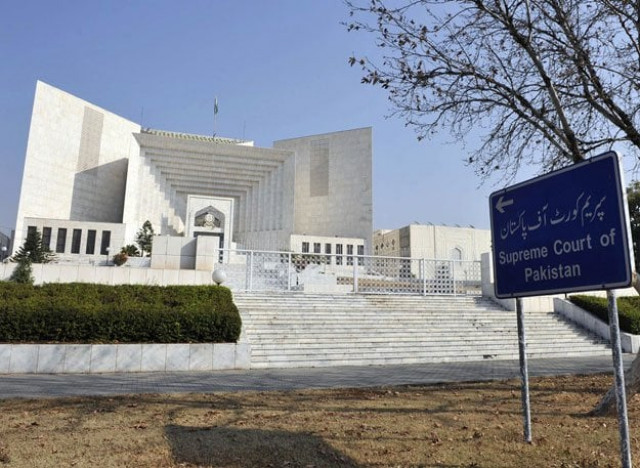Court hearing: MPs passed 21st amendment against free will, says attorney
Abid Zuberi cites Raza Rabbani’s remark that he did so against conscience

PHOTO: AFP
During the hearing of the 18th and 21st Constitutional Amendment case, Supreme Court (SC) judge Dost Muhammad Khan asked whether parliament, through a constitutional amendment, could extend the jurisdiction of military courts to Fata in view of Article 247(6) of the Constitution.
“The president may, at any time, by order, direct that the whole or any part of a tribal area shall cease to be tribal area, and such order may contain such incidental and consequential provisions as appear to the president to be necessary and proper,” says the Article.
During the hearing, the Pakistan Bar Council (PBC) attorney Ibrar Hassan argued that instead of striking down the amendment the court should find out the via media solution.
When the court inquired what he meant by this suggestion, the counsel replied that instead of striking down the amendment the matter be referred to parliament with suggestions. Abid Zuberi, representing the Sindh High Court Bar Association (SHCBA), argued that parliament did not follow the procedure laid down in Article 239(1)(2) of the Constitution. “Though the 21st Amendment was passed by a two-thirds majority of parliament, all those who voted in favour of the amendment did not do so of their free will, as they were compelled to do under Article 63A(1)(b).”
Justice Khosa inquired whether there was any empirical data in that regard because they can’t read the minds of parliamentarians.
The counsel said it has appeared in the media that Raza Rabbani gave his vote against his conscience. However, the chief justice said he voted in favour of the amendment.
Justice Ejaz Afzal remarked that though Rabbani voted against his conscience, but did he say he voted because of Article 63A of Constitution.
Zuberi argued that after the December 16 Army Public School attack in Peshawar, heads of political parties at an All Parties Conference (APC) decided the establishment of military courts through a constitutional amendment and the parliamentarians approved the amendment against their conscience because of the decision of their leaders.
Justice Khosa questioned whether it was against the conscience or with a heavy heart? He said, “In death sentence cases judges know that it is matter of a person’s life and death, but they pass the judgments with a heavy heart.”
The judge inquired whether the court could say that as parliament passed the 21st Amendment against conscience therefore it is a rubber-stamp parliament.
Published in The Express Tribune, June 18th, 2015.



















COMMENTS
Comments are moderated and generally will be posted if they are on-topic and not abusive.
For more information, please see our Comments FAQ